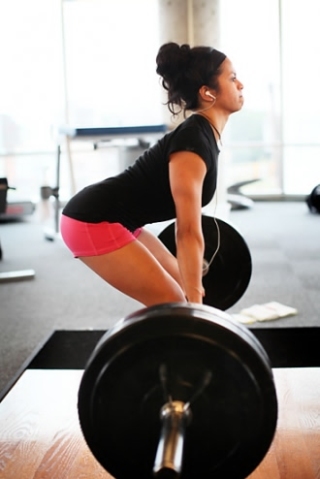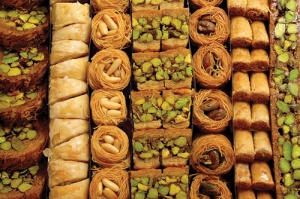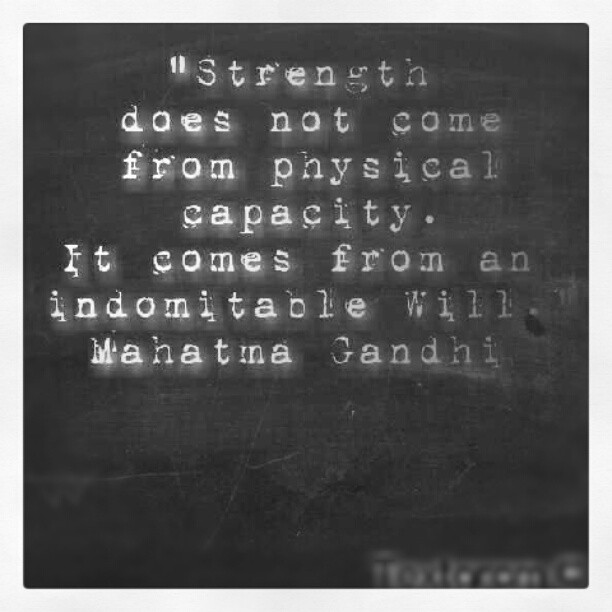Ramadan Day 7 #Supplementation
Ramadan is under way and we are probably starting to feel its effects more and more. The lack of Sleep, Mood Swings, Lethargy, Feeling Weak, Low Energy Levels and many others effects.
This is directly correlated with your nutrients intake, in this case the lack of it. So how to make your body keep functioning optimally ? Supplementation
What are Supplements?
In the United States, dietary supplements are substances you eat or drink. They can be Vitamins, Minerals, Herbs or other Plants, Amino AcidsT (the individual building blocks of protein), or parts of these substances. They can be in pill, capsule, tablet, or liquid form. They supplement (add to) the diet and should not be considered a substitute for food.
I use supplements to fill gaps in my clients Nutrition, and possible Hormonal imbalances to reestablish their Optimal health. Personally I advise and prescribe Dietary Supplements to my PT Clients and Online Clients.
I get my children on supplements, my 5 year old is currently on EPA- DHA ( Fish Oil) and Multivitamins and my 2 weeks old newborn is already on Vitamin D3, due the lack of Vitamin D in Kuwait.
Back on the subject (blame my ADHD) , Best Supplements to Use during Ramadan.
My Top Supplements for Ramadan:
1- EPA- DHA ( Fish Oil ) ;Omega-3 fatty acids, specifically EPA and DHA, provide support for cardiovascular health, immune function, blood sugar/insulin management, and more. Omega-3’s can also help reduce inflammation in the body. It helps with fat loss and metabolism. DHA may be beneficial for cognitive health.
2- MAGNESIUM; Magnesium, a mineral found abundantly in the human body, it is involved in hundreds of essential biochemical reactions that keep the body functioning properly. It is one of the body’s most essential minerals and plays a role in protein synthesis, cardiovascular health, immune function, and blood sugar management.
3- PROBIOTICS; Probiotics are healthy bacteria that can restore balance in the Intestines. Probiotics also increases Glutathione and activated detoxification on the System.
4- CHROMIUM; Chromium is a mineral our bodies use in small amounts for normal body functions, such as digesting food. Chromium helps to move blood sugar (glucose) from the bloodstream into the cells to be used as energy and to turn fats, carbohydrates, and proteins into energy.
5- CARNITINE; I like Carnitine Synergy because of the mix of products. Carnitine helps regulate fat metabolism by facilitating the transport of fats and cholesterol across cell membranes into the mitochondria and may improve the production of ATP in muscle tissue. Alpha Lipoic Acid is a powerful antioxidant supporting compound that helps to recycle and restore Vitamin A,C,E and glutathione activity in the body. It works synergistically with Carnitine to provide mitochondrial support and may help with the prevention of age related metabolic decline through the reduction of oxidative stress and lipid peroxidation.
6- GLUCOREG; GlucoReg is composed of dietary supplements that help balance blood sugar levels and improve insulin function and utilization, improve carbohydrate metabolism, help balance oxidative stress, help support vascular health and help improve cellular energy and metabolism.
All the supplements mentioned above are related with the effects mentioned earlier; they are specific to Ramadan.
Of course you could add more supplements on this list, but these 6 bad boys will keep you sharp for the rest of the Holy Month.
* Do not take any medication or supplement without the Professional advice from your Health Practitioner.
Keep following our Ramadan Series and send me your Feedback.
Thanks and Keep Safe.
Ramadan Day 5 # Constipation
Day 5.
You probably start to feel some of the Ramadan Effects; and some of them will make you discomfortable .
Constipation is one of the effects that can bother us during Ramadan, and we don’t feel very comfortable to share with friends and ask for help.
Don’t worry I won’t tell anyone.
First let’s understand why, and then how to avoid, and to finish it how do stop it and finally release it.
One of the reasons why it happens, is the simple change on the routine, Fasting itself can be the enough stress on the digestive system.
But it’s no the end of the world or something to get worry and lose your sleep; Almost everyone gets constipated at some time during his or her life. It affects approximately 2% of the population in the U.S. Women and the elderly are more commonly affected. Though not usually serious, constipation can be a concern.
Symptoms of Constipation:
– Obviously you know when you can’t release.
-Infrequent bowel movements or difficulty having bowel movements (straining)
-Hard or small stools
-Sense of incomplete bowel movement
-Swollen abdomen or abdominal pain
-Pain
-Vomiting
* If you go to bathroom twice a week you are definitely Constipated.
Tips do avoid it:
1- The first one would be have a close look on your Gut Health , but this subject need a solo article.
2- Exercise regularly , move more will help you to get rid of it.
3- Avoid Coffee.Liquids that contain caffeine, such as coffee and soft drinks, seem to have a dehydrating effect and may need to be avoided until your bowel habits return to normal.
4- Water. Don’t forget to reach a minimum of 8 glasses of water per day ( non Training day) . Check the Ramadan Day 1#Hydration for more informations.
5- Balance your meals with Proteins,Fats and Carbs and plenty of Fibers. Fibers such as fruits , vegetables and legumes will help you pass the stool easier.
6- Vegetables. Remember what your Parents use to say about it, it was true.
7- Some of you might feel released after stop Milk. Worth to try not everyone deal very well with dairy products.
8- Stop to use your pain killers. Like aspirin and ibuprofen.
Tips if you are Constipated:
1- Start to do the steps above.
2- Check your Thyroid . Its another subject that will deserve a special article.
3- Add some fruits like Prune, Raspberry, Pear and Apples ( with skin)
4- Add some Veggies like Broccoli, Spinach ( Cooked ),Green peas, Sweet Potato, Squash.
5- Drink plenty of Water.
6- Avoid:
-cheese
-chips
-fast food
-ice cream
-meat
-prepared foods, such as some frozen meals and snack foods
-processed foods, such as hot dogs or some microwavable dinners
Well hope you enjoyed the reading ; keep up with the good work.
See you on the Next Article , Ramadan Day #7.
Ramadan Day 3 # Sugar
Our Sweet Friend, we can’t leave without it during Ramadan; this is the excuse that I hear everyday. I will help you to control it and get better options, even how to decrease the craving.
I know how hard is it, variety is enormous: Kanafa, Basbussa, Kataif, Chocolate, Cakes , etc….
Getting diabetic only by writhing this, anyway let’s break this down and reach the point.
First you need to understand what happens to your body after a meal, your blood glucose rises depending the amount of Protein, carbohydrates or fat you ate.
For example after a carb meal your blood glucose will raise higher( if compare with Protein and Fats) and release a huge amount of Insulin.
If this event happens frequently , your cells become resistant to it. So will body will start to store Glucose as fat.
Studies proven that Insulin resistant is ONE of the biggest villains of Weight and Fat loss. So cutting your calories during Ramadan won’t guarantee weight loss , if your feeding is based on High carb intake.
Just a quickly reminder, Sugars are Carbohydrates. Shocking right?
Tips how to enjoy your Desserts
1- Don’t eat Sugar!!! Simple right? Just kidding
2- 2 to 3 dates are enough to break your fast on. Remember dates are also rich in calories, so don’t forget that moderation is required to help you maintain a healthy weight during Ramadan.
3- Don’t have your sweets during your Fitar, it will increase the size of your stomach and increase blood glucose. it means craving more and more sugar.
4- Have a Salad bowl before eat your dessert. It will decrease the craving and probably you will eat less.
5- Use Low Carb Fruits instead of desserts. Use berries or Pomegranate
6- Eat your dessert after 2 to 3 hours from your Iftar.
7- Choose dates, dry fruits , nuts and Green Juices to keep as snacks. It will help you out and maintain a healthy weight.
8- Use 3 fingers to control your portion. Yes I am talking about your dessert.
9- Drink Green tea after your Dessert. Antioxidants to clean the damage.
10- Don’t eat it.
Hope you are enjoying our series, see you again on Day 5.
Ramadan day 1 #Hydration

The main goal of my Ramadan Series will be focusing in how to go through the Holy month Healthier and Fitter.
Let’s forget about all the negative points of being fasting, it’s a reality and let’s face it.
The goal on this Series will be, how to get the best benefits out of it.
Let’s stop to talk ( I am thirsty already) and get on it.
#Hydration
The most underrated factor of Fat Loss or Weight Loss, we forget how Water is essential in our Bodies.
60 –70% of your body is made of water and any reduction in your water intake can affect your body’s cells and nerves from functioning properly. This is why it is absolutely essential to compensate the loss of water in your body, because dehydration can cause undesirable side effects such as: constipation, headache, dizziness, tiredness,dry skin, inflammation and higher Cortisol levels.
How to not get Thirsty during the day ?
Pick your notebook and pen ( or just follow the blog )
1- Avoid break your fast your with Juices ( KDD and others) . You don’t want start your day spiking your glucose, and starting a craving cycle of sugars and carbohydrates.
2- Eat Green Vegetables . Do not forget the rest of the colors but choose the ones with more fluids ,it will keep you full.
3- Drink around 8 glasses of water during your feeding time, if you trained drink it more. Keep yourself hydrated and avoid heat and saunas during this month.
4- Use a bottle where you can measure the amount of water; it makes easier to control. Knowing where you going makes things easier.
5- Do not drink 6 glasses of water at once. Consistence is the Key, small amounts during the feeding time.
6- Don’t drink soft drinks or juices, the amount of sugar on this drinks will make you not only consume more sugars and carbs , but make you really thirsty on the next day.
7- Carry a bottle with you, during your family visits and prayers. You can be a bit more sophisticated and add some lemon on it; to decrease the acidity on your body.
8- Avoid high lactating exercises ( HIIT, Sprints, Quadrisets) It’s not the time to do your best, i won’t extend this on other points, but you are not in your best fluid balance to go crazy and go BeastMode.
9-Avoid salty foods, such as canned or processed foods, salted nuts, and pickles, because these will increase your thirst during the fasting period.
10- Seriously do not Drink Juices!!!
See you Tomorrow with more Tips.
You can follow me on KTV2 everyday at 3:00 PM.
Ramadan Part 2
Well, here we are half way through Ramadan. It has been a tough month for all of us, but we are still strong and keeping on track. Well it’s what we presume and expect.
I took a longer break to write the second article, to be able to use the science and the experience to deliver more reliable information and thoughts about Ramadan. This time I questioned my colleagues and clients about what are the common issues in Ramadan and also the ones who workout before Fotoor; feel free to comment and send me more questions if your doubts haven’t been clarified.
First, let me tell you something; The most common question about Training before Fotoor was; What’s happening with my body?
Our body after an underfeeding or fasting period became Catabolic (Catabolic State). It means you are breaking down Muscle Tissues; without the necessary nutrients before, during and after Training this is what’s happening to your body. Training before will not build muscles, or make you burn Fat (I believe that is what you are looking for right?!) it will make you break down.
*Understanding Catabolic State: A catabolic state is closely related to the catabolic hormone called cortisol. The more intense the workout, the more cortisol is secreted by the adrenal glands to make up for the loss of muscle tissue. Many people think that their few hours of working out have helped them build muscles, but in actuality, their lost energy is compensated by cortisol. This is the reason why protein and carbohydrate intake play a significant role in building muscle. Overtraining will also lead to weakening of your body and immune system, thereby, causing influenza, the common cold and other illnesses.
If your target is to get Healthier, the best way isn’t Workout before Fotoor.
Second most common question; What shall I eat during Sohoor ? (last meal before starting to fast).
Let’s keep it simple, if during your feeding time, you are eating healthy and balanced (avoid Processed Food, Sweets, Cereals and drink plenty of water to keep Hydration, eat High Quality Protein, Good Fats and Good Carbs). The Sohoor isn’t a big deal; listen to your body, find a meal that won’t let you be so thirsty; I personally like Yogurt, but you can try something that suits you better.
Third most common Question; Why can’t I lift as heavy as I normally do?
This is simple, you’re not on your Personal Best shape, the Hormonal imbalances, higher Stress levels and lack of Sleep(3 majors components).
I advice during Ramadan (after Fotoor) Strength Training; Most of you never did the foundation of it. A Relative Strength Training (1 to 5 reps, around 85% of your 1RM) would be massively important for your development and build a good foundation for your next program. Look for a Professional who can design a proper Program that matches your Goals and Abilities.
Benefits of Strength Training:
– Neuro System activation
– Longer Breaks between sets
– Avoid Training Plateau
-Produces Higher amount of Growth Hormone
Tip: Avoid excessive or High Intense Interval Training, it will invariably cause immense mental and physical stress, and lack of sleep will make it worse.
I hope I could help, by the way the Warrior Diet is working well with me and the clients who are following it. In my case I did get ripped in the first week of Ramadan, I did feel much leaner and lighter, during the second week I did increase the quantity of carbohydrates, but didn’t work well, so I am back on track. Enjoy the reading and keep Strong and Healthy.
References:
Churchward, T., Burd, N., et al. Nutrion Regulation of Muscle protein Synthesis with Resistance Exercises: Strategies to Enhance Anabolism . Nutrition and Metabolism. 2012.
http://www.fitday.com/fitness-articles/fitness/body-building/how-to-avoid-a-catabolic-state.html#b
Ramadan
Ramadan Kareem to all my clients, friends and followers.
Well for the ones who don’t know Ramadan, it’s a holy month on the Islamic Calendar, where all the Muslims practice their religion Fasting during the day (Between the Fajr Prayer and Maghrib prayer).
But of course you know that already, and the question is what to eat? How to be healthy during Ramadan? Am I destroying all what I did during the year while fasting?
Well let’s start it.
While you are fasting (in a simple way to explain it, trying to be as clear as I can, and really looking for feedback and discussions with scientific background in the comments) your body goes into a Starvation Mode, where your System starts to use the nutrients in your muscles to keep your normal functionality, and storing fat and carbohydrates as energy sources (losing muscle mass and keeping fat to survive).
The Starvation Mode actually is the trigger of other healthy Complications such as:
– Insulin resistance
– Cortisol Levels get higher
– Issues with Digestive System
– Inflammatory State
– Hormonal Imbalance
– Adrenal Fatigue
– Sleep Patterns Issues
I am just being realistic and direct to the point, not trying to make up anything; so don’t believe if someone comes to you and says that it is healthy, I am not saying it’s wrong, we have to do what we have to do.
From my own experience and a few consultancies from PHDs in the field around the globe, my advice for the ones who don’t want to waste all the hard work, and don’t want to accumulate extra body fat and lose the muscle mass that you gained and you truly earned during the year, is to follow the Ori Hofmekler Diet known as Warrior diet.
The Warrior Diet, the primary goal was developing a lean, athletic “warrior” body as seen in the times of the Romans and Greeks and doing so in a manner that promoted health and well being. He claims that this style of eating is the most natural to us as hunters/gatherers, and warriors were active and working during the day with little time or available food to eat. The Greek and Roman warriors usually set up camp at night and that is when they would feast, refueling themselves for another day of battle.
Does it sound familiar?
I will use it myself and I will let you know how its goes, during Ramadan and a final result at the end of it.
It will work with everyone except with Athletes, Sport Competitors, Bodybuilders, this public would need a necessary modification on it.
Few Tips to keep you Lean and don’t accumulate body fat:
– Hydration is the Key. As soon as you break your fast, have plenty of WATER
– Workout after Breakfast
– Have a light Breakfast. Avoid sweets and processed Food
– Spread your meals during the hours
– Balance between: High Quality Protein, Complex Carbs and Good fats
– Drink water with lemon or Lime. It will decrease Cortisol Levels
– Exercise to Maintain. Don’t try to break Personal Records during this Period
– Yoga Classes
– Supplementation
Supplements:
– Fish oil Omega 3s and 6s
– Minerals (Zinc, Magnesium)
– Multivitamins
– Acetyl L-Carnitine
– Essential Amino Acids (BCAAs)
– Green Powders ( Fibers)
– HCL ( Digestive Enzyme Complex)
– Casein and Whey Protein (Pre and Post Workout)
Remember, you should find the best way to fit your lifestyle and goals. It’s not easy it’s actually pretty tough and will require a lot of Moderation, Patience and Discipline. But I do believe that is what Ramadan is about.
Well I hope I could help, the Ramadan subject is very delicate I would like to say that I am not against Fasting, but when I decided to write on this blog I knew that it would be challenging and questionable, but I can’t lie just to get more media. I won’t spread nonsense information.
Happy Ramadan.
References:
http://articles.elitefts.com/nutrition/the-modified-warrior-diet/






